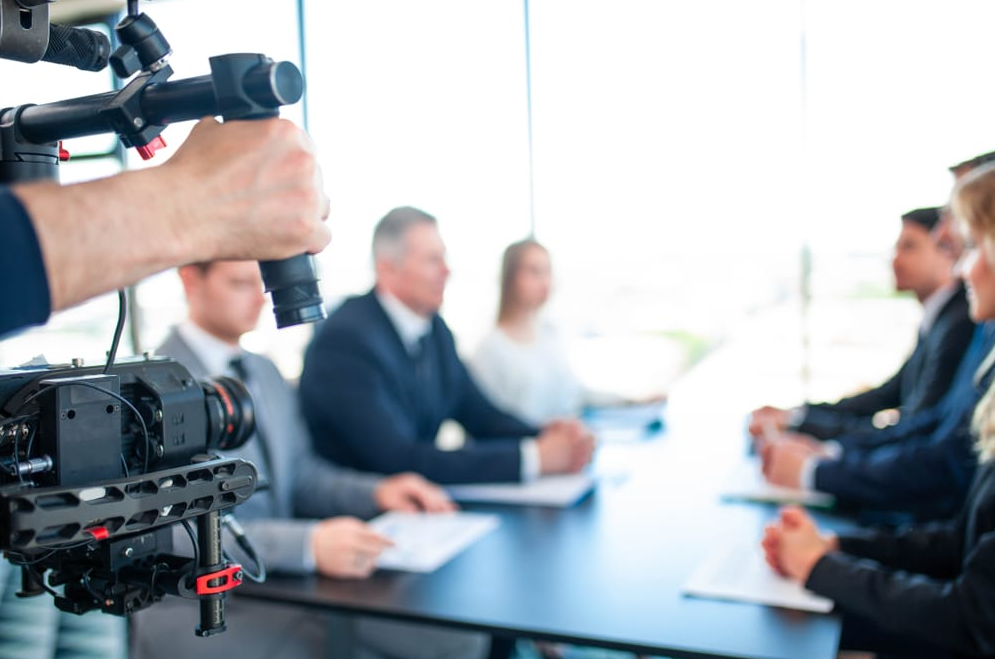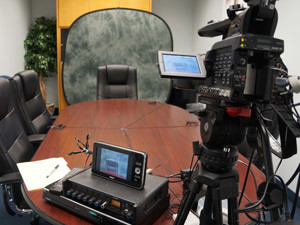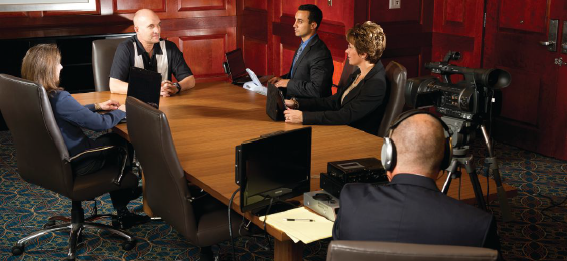The Role of Legal Videography in Depositions and Trials
Legal videography has arised as a crucial tool in both depositions and tests, supplying a multifaceted strategy to documenting witness testaments. As legal specialists progressively identify its value, it motivates a deeper exam of how these aesthetic records can affect juror understandings and test outcomes.

Significance of Lawful Videography
Lawful videography plays an essential function in the documents and presentation of depositions and tests. This customized field incorporates technological abilities with legal expertise to produce a reputable document of procedures that can substantially affect case end results. The appearance of legal videography boosts the understanding of witness statement, enabling jurors and judges to observe not just the spoken words however additionally the behavior, feelings, and body movement of the witnesses.
Additionally, legal videography supplies an objective account of events, reducing the capacity for misconception that can happen with composed transcripts alone. This visual documentation works as an important tool during trial presentations, facilitating a more clear and even more influential story for both complainants and accuseds. Moreover, the capability to replay video sections during court process makes it possible for lawful teams to emphasize essential points, enhancing their debates successfully.
The significance of legal videography expands past the court; it likewise plays a vital duty in protecting evidence for future recommendation, whether for appeals or more lawsuit. As such, its integration right into the legal process is crucial for making certain a fair and accurate depiction of the truths, ultimately adding to the quest of justice.

Process of Legal Videography
While recording the nuances of depositions and trials, the procedure of lawful videography involves a number of essential steps that make sure top quality, precise recordings. A professional lawful videographer prepares by reviewing the situation products and understanding the particular needs of the deposition or trial. This preparation consists of acquainting themselves with the individuals and the context, which assists in catching significant details.
On the day of the recording, the videographer establishes the required devices, which commonly includes high-definition cameras, microphones, and proper illumination. Making sure ideal angles and audio top quality is crucial, as it directly impacts the effectiveness of the recording. The videographer communicates with attorneys and individuals to establish methods, guaranteeing that everybody comprehends the recording process.
Throughout the deposition or test, the videographer carefully videotapes the process, paying attention to both spoken and non-verbal signs. This includes recording the disposition and responses of witnesses and lawyers. After the session concludes, the videographer might edit the video for clearness and compliance with legal criteria, generating an end product that properly shows the proceedings for future reference and usage in legal contexts.
Advantages in Depositions
The unification of videography in depositions uses various benefits that improve the overall procedure of gathering evidence. One key benefit is the ability to record witness statements with visual and acoustic integrity, offering a Clicking Here more exact representation of the witness's behavior, tone, and body language. This multidimensional approach permits attorneys and courts to analyze reputation better than standard written transcripts alone.
Additionally, videographed depositions act as a powerful device for protecting testament. Must a witness become inaccessible for trial, their videotaped deposition can be played in court, making sure that their evidence remains easily accessible and relevant. This facet considerably minimizes the danger of shedding important details that could affect instance end results.

Last but not least, videography enhances the overall professionalism and trust of the deposition procedure, instilling self-confidence in clients concerning the thoroughness of their legal representation (legal videography). By leveraging technology, attorneys can dramatically enhance the performance of depositions
Influence On Tests
In several trials, the integration of videography can considerably affect the discussion of evidence and the jury's understanding. Lawful videography records witness testaments and vital proof in a vibrant layout, enabling jurors to involve with the product on numerous levels. This visual part boosts the storytelling element of a test, supplying context and psychological vibration that typical text-based proof may lack.
Moreover, video clip recordings can work as effective devices for impeachment during cross-examination. When disparities emerge check that between a witness's previous declarations and their courtroom testament, video proof supplies an objective referral that can persuade jurors' opinions. This immediacy and quality can boost the credibility of an event's narrative while at the same time undermining opposing debates.

Future Trends in Legal Videography
As we look toward the future of lawful videography, several arising patterns guarantee to improve its function within the court. One considerable pattern is the assimilation of fabricated knowledge (AI) in video clip analysis and modifying. AI can improve the procedure of recognizing crucial minutes in tape-recorded depositions, permitting attorneys to swiftly access relevant material, consequently boosting performance in situation prep work.
Furthermore, the increase of digital reality (VIRTUAL REALITY) and augmented reality (AR) innovations is anticipated to transform how jurors experience proof. legal videography. By submersing jurors in a simulated setting, these technologies can give a much more profound understanding of intricate scenarios, causing more informed considerations
Furthermore, the increasing need for remote depositions, sped up by the COVID-19 pandemic, will likely proceed. Legal videographers will certainly require to adjust to new software application and systems to ensure top notch recordings in online setups.
Lastly, the growing emphasis on data safety and security will necessitate stricter protocols for saving and sharing video clip proof. As the lawful landscape advances, legal videographers should stay abreast of these trends to keep their importance and performance in the judicial process.
Conclusion
In recap, legal videography serves a crucial feature in the judicial procedure, improving the integrity of depositions and trials. By capturing the nuances of witness statements, this medium not only preserves important evidence yet likewise aids in offering information properly to jurors. The relevance of aesthetic paperwork in assessing reputation and facilitating interrogation can not be overemphasized. As technology proceeds to progress, legal videography is poised to additional transform its function within the legal landscape.